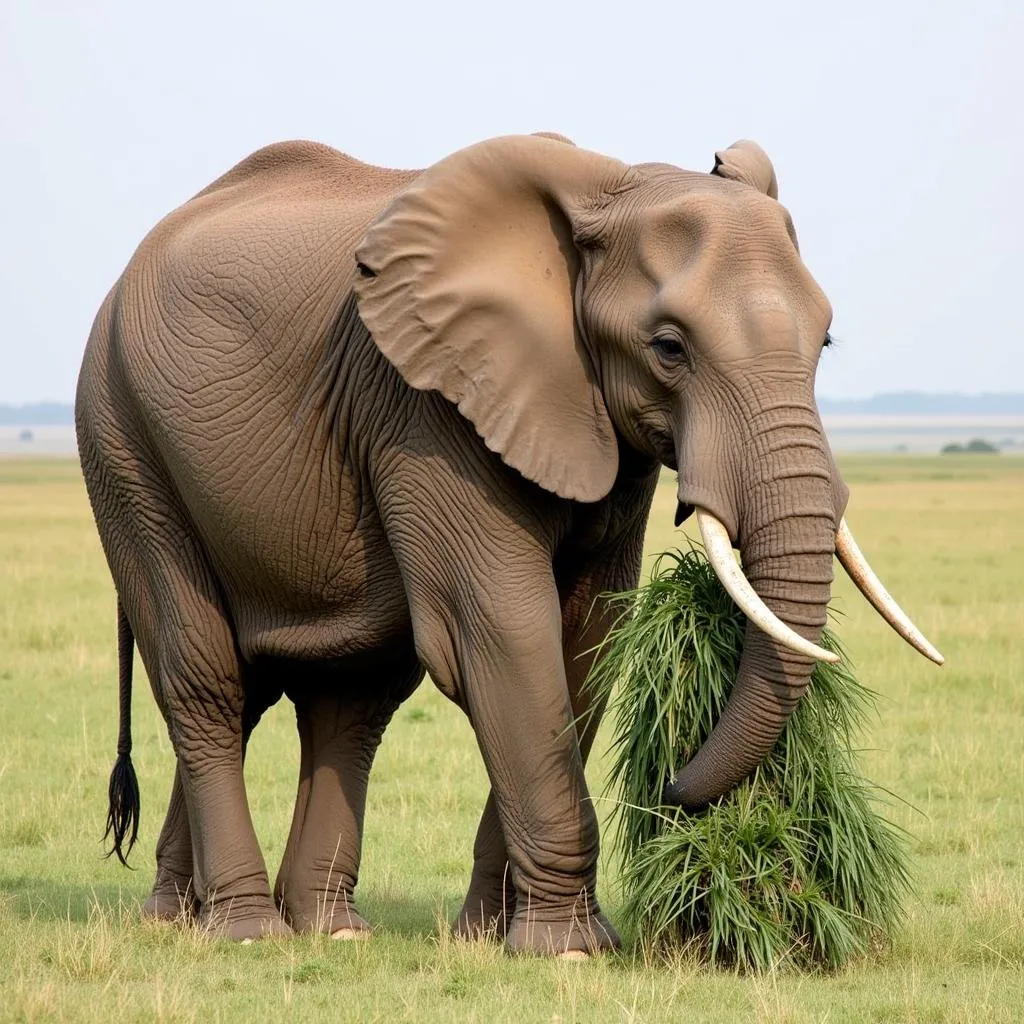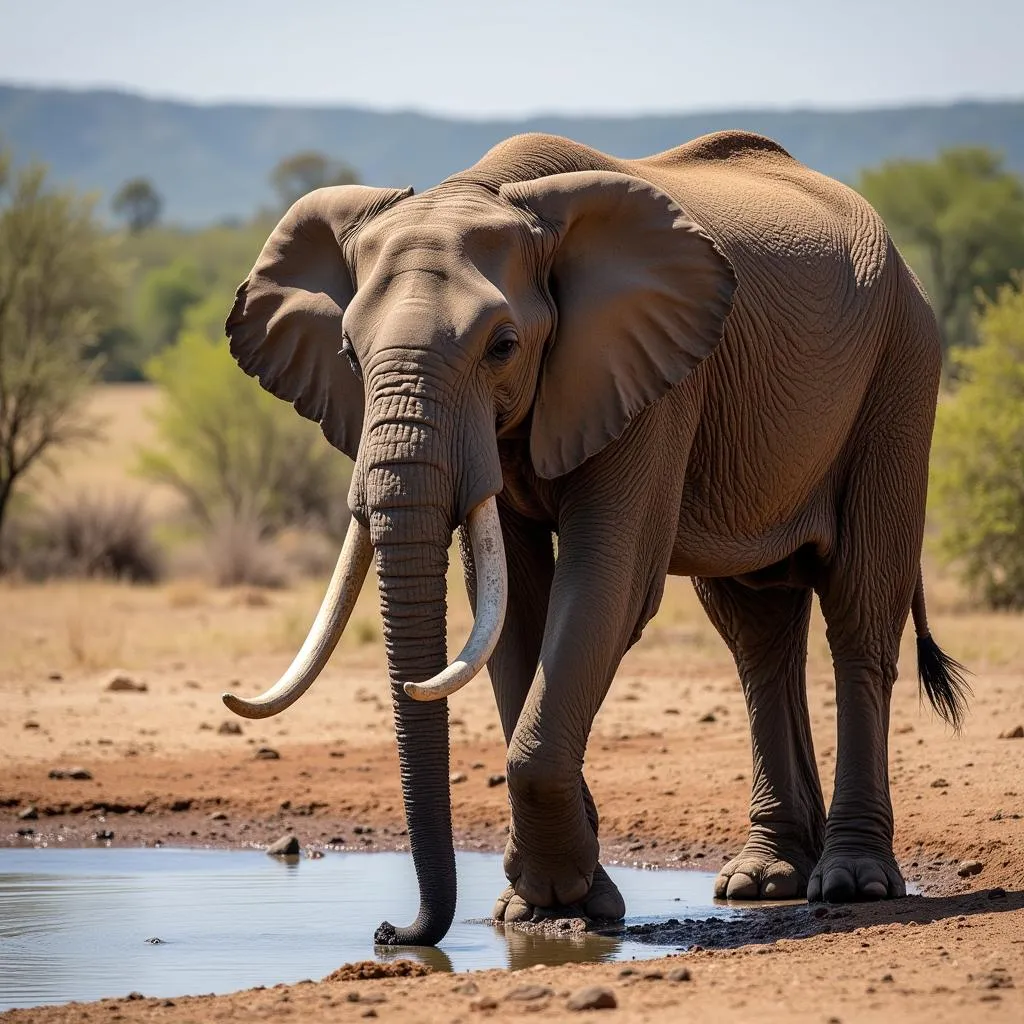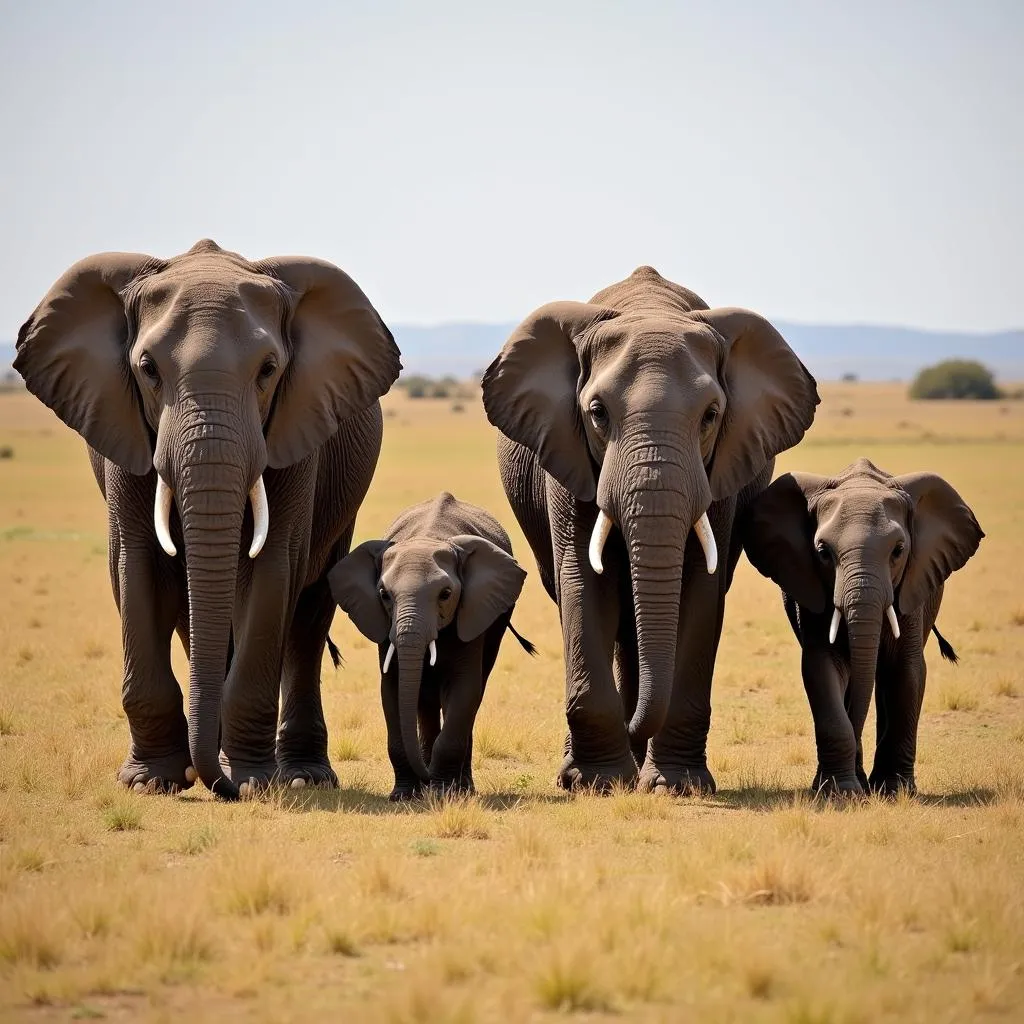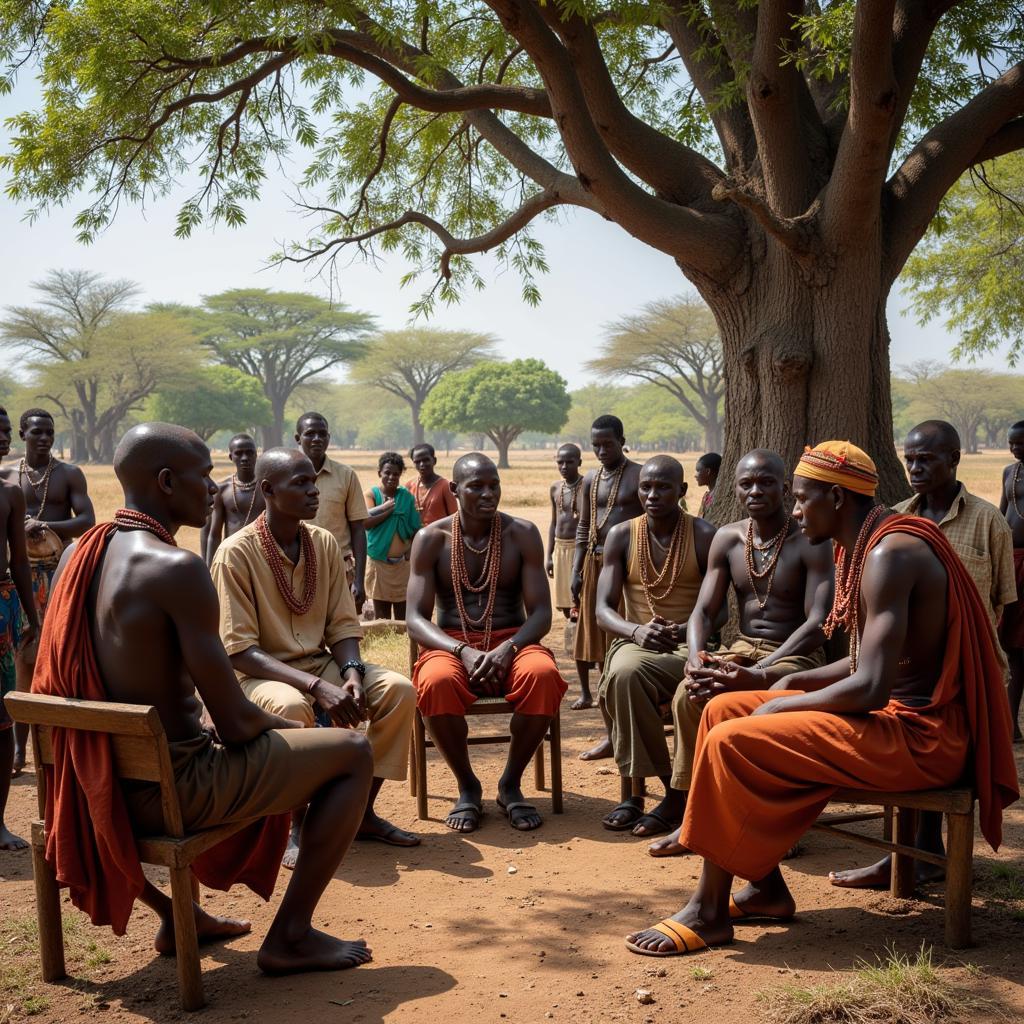African Elephant Food: A Deep Dive into the Giants’ Diet
African elephants, the largest land mammals on Earth, are renowned for their immense size and majestic presence. Their dietary habits are equally fascinating, playing a crucial role in shaping their environment and sustaining their massive bodies. These gentle giants are herbivores, meaning their diet consists entirely of plants.
What do African Elephants Eat?
African elephants are incredibly versatile eaters, consuming a diverse range of plant matter to meet their nutritional needs. Their diet varies significantly depending on factors such as the season, geographical location, and availability of food sources.
Types of Food
Here is a breakdown of the primary components of an African elephant’s diet:
- Grasses: During the wet season, when grasses are abundant and lush, they constitute a significant portion of an elephant’s diet.
- Leaves: Elephants browse on a variety of tree and shrub leaves, particularly favoring those rich in nutrients.
- Bark: Elephant tusks are instrumental in stripping bark from trees, providing them with essential minerals and fiber.
- Fruits: When in season, fruits such as wild berries, figs, and mangoes become a sought-after treat for elephants.
- Roots and Bulbs: During drier periods, elephants use their tusks and powerful feet to dig for water-rich roots and bulbs.
 African Elephant Grazing
African Elephant Grazing
How Much Do African Elephants Eat?
To sustain their massive size, African elephants consume enormous quantities of food daily. An adult elephant can eat between 200 to 600 pounds of vegetation per day. This equates to spending about 12-18 hours a day foraging and feeding.
The Importance of Water
Water is just as crucial as food for African elephants. They require 30-50 gallons of water daily and can often be found near water sources, especially during the dry season. Their ability to locate and access water is essential for their survival and the survival of other animals that rely on the water sources they uncover.
The Role of Elephants in the Ecosystem
African elephants play a critical role in maintaining the balance of their ecosystems:
- Seed Dispersal: Many plant species rely on elephants to disperse their seeds over long distances, contributing to the diversity and health of plant life.
- Habitat Modification: Elephants create clearings in forests and woodlands by knocking down trees, which allows for new growth and provides habitats for other animal species.
- Nutrient Cycling: Their dung is rich in nutrients and helps fertilize the soil, promoting plant growth.
 Elephant Drinking at a Waterhole
Elephant Drinking at a Waterhole
Threats to African Elephants and Their Food Sources
- Habitat Loss: As human populations grow and expand into elephant habitats, competition for land and resources intensifies. Deforestation and agriculture are significant contributors to habitat loss.
- Poaching: The illegal ivory trade poses a severe threat to African elephant populations. Poaching not only decimates elephant numbers but also disrupts their social structures and feeding patterns.
- Climate Change: Altered weather patterns, including droughts and unpredictable rainfall, impact the availability and distribution of elephant food sources.
Conservation Efforts
Numerous organizations and initiatives are dedicated to protecting African elephants and their habitats:
- Anti-poaching patrols work to combat illegal wildlife trade.
- Community-based conservation programs empower local communities to manage and benefit from wildlife resources sustainably.
- Habitat restoration efforts aim to reconnect fragmented forests and create corridors for elephant movement.
Conclusion
Understanding the dietary needs and ecological significance of African elephants is paramount for their conservation. By protecting their habitats, combating poaching, and addressing climate change, we can ensure that these magnificent creatures continue to thrive and shape the African landscapes for generations to come.
FAQs
1. Are African elephants dangerous?
While African elephants are generally peaceful animals, they can be dangerous if they feel threatened, especially when protecting their young. It’s essential to observe them from a safe distance and respect their space.
2. What is the difference between African bush elephants and African forest elephants?
African bush elephants are larger, have larger ears, and live in savannas and grasslands. African forest elephants are smaller, have straighter tusks, and inhabit dense forests.
3. How can I help protect African elephants?
You can support organizations working on elephant conservation, educate others about the importance of elephants, and advocate for responsible tourism practices.
 Family of Elephants Roaming
Family of Elephants Roaming
For more fascinating insights into the lives of African elephants, you can explore related articles on the African elephant food chain, the African bush elephant in Hindi to reach a wider audience, and the African bush elephant baby weight. To understand the cultural significance of these animals, delve into the captivating world of African elephant culture. Lastly, discover the diverse plant life they feed on, such as the intriguing African hanging leaves.
If you have any questions or need assistance, please don’t hesitate to contact us at +255768904061, kaka.mag@gmail.com, or visit us in Mbarali DC Mawindi, Kangaga, Tanzania. Our dedicated customer service team is available 24/7 to help you.




